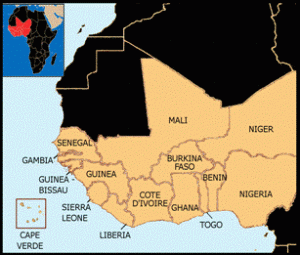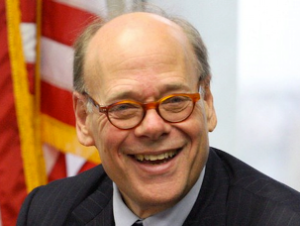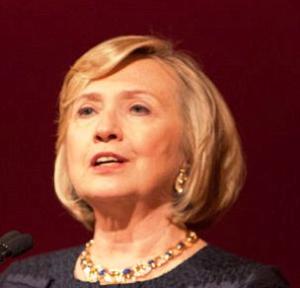A new report from the West Africa Commission on Drugs calls for decriminalization and a public health approach, but that may be just the beginning of changes needed in West Africa.
A new report from the Drug Policy Alliance and the Multidisciplinary Association for Psychedelic Studies rips the DEA for obstructing research and ignoring science as it fights to keep marijuana Schedule I.
The land of Rastafari is about to free the ganja. A government minister announced today that it is ready to decriminalize the possession of up to two ounces for recreational, scientific, spiritual, or medical purposes.
High drama in New York as a medical marijuana bill goes down to the wire, congressmembers call on HHS to help unblock marijuana research, a limited CBD medical marijuana bill becomes law in another Southern state, and more.
In all the years we've been doing this weekly update, there's only been one week with no corrupt cops stories. This week is pretty quiet, but we've still got a couple.
Marijuana reform is exciting some third-party activity, New York's medical marijuana bill is still alive amidst ongoing last-minute negotiations, the New York Senate has passed a package of anti-opiate bills that will bring on more drug war, a high-level commission calls for radical drug policy changes in West Africa, and more.
Jamaica will decriminalize pot possession and Bermuda is thinking about it, legalization initiatives in Alaska and Oregon get big bucks donations, medical marijuana reform is moving in the DC city council, and more.
It's looking like at least one Oregon marijuana legalization initiative will make the fall ballot, a legalization initiative gets underway in Oklahoma, proposed medical marijuana rule changes in New Mexico run into stiff opposition, Georgia gives up on drug testing food stamp recipients, UN Secretary-General Ban Ki-moon gets a coca birthday cake in Bolivia, and more.
It looks like Oregon is set to join Alaska in voting on marijuana legalization this year, the New York medical marijuana bill is going down to the wired, Florida's governor signs a pair of drug-related bills, Colombia's drug reforming president wins reelection, and more.
A pair of potential presidential contenders speak out on marijuana, five New England governors meet on the opiate issue, New York cops are starting to be trained to use the overdose reversal drug naloxone, New York's governor makes passage of medical marijuana there iffy, the Dutch high court rules cities can ban foreigners from cannabis coffee shops, and more.
Over the past decade, West Africa has emerged as an increasingly important player in the global illicit drug trade. Although the region has historically not been a drug producing one -- with the important exception of marijuana -- it has become a platform for predominantly Latin American drug traffickers moving their illicit commodities toward lucrative European and Middle Eastern markets. The cocaine traffic alone is worth more than a billion dollars a year, according to a 2013 report from the UN Office on Drugs and Crime (UNODC).

children walking from home to school in Bamako, Mali (JoeyTranchinaPhotography©2014 Sète, France)
And the trade is becoming more complex. Now, it's not only cocaine flowing through the region, but heroin destined mainly for Western Europe and
methamphetamines being manufactured there and exported to Asia and South Africa, that same
UNODC report found.
The region -- stretching along the African coast from Nigeria to the east to Senegal on the west, and extending deep into the Sahara Desert in countries such as Mali and Niger -- is plagued by weak states and corrupt governments, making it attractive to criminals of all sorts, who thrive in lawless lands. And it's not just criminals. The region is also home to various bands of Islamist militants, some of whom are involved in the drug trade.
Now, a commission of prominent West Africans is calling for fundamental changes in drug policies in the region. Last week, the West Africa Commission on Drugs, issued a report, Not Just in Transit: Drugs, the State and Society in West Africa, calling for the decriminalization of drug use, treating drug use primarily as a public health issue, and for the region to avoid becoming the next front line in the failed war on drugs.
The commission is impressive. It was initiated by former UN Secretary-General Kofi Annan of Nigeria and headed by former Nigerian President Olusegun Obasanjo, and includes other former heads of state as well as a distinguished group of West Africans from the worlds of politics, civil society, health, security and the judiciary.
And so is its very existence. It marks the entrance of West African civil society into the international debate on drug policy in which calls for fundamental drug reform have gained increasing momentum in recent years. In 2008, former Latin American heads of state and other luminaries formed the Latin American Commission on Drugs and Democracy, and in 2011, Annan and other world luminaries and former heads of state came together to form the Global Commission on Drug Policy. Now, West Africa adds its voice to the chorus calling for change.
"We call on West African governments to reform drug laws and policies and decriminalize low-level and non-violent drug offenses," said Obasanjo upon the report's release last week. "West Africa is no longer just a transit zone for drugs arriving from South America and ending up in Europe but has become a significant zone of consumption and production. The glaring absence of treatment facilities for drug users fuels the spread of disease and exposes an entire generation, users and non-users alike, to growing public health risks."
"Most governments' reaction to simply criminalize drug use without thinking about prevention or access to treatment has not just led to overcrowded jails, but also worsened health and social problems," added Kofi Annan.

West Africa
"We need the active support and involvement of civil society and of the international community," said commission member
Edem Kodjo. "South America, where most of the drugs smuggled to West Africa come from, and Europe, which is the main consumer market, must take the lead to deal with both production and consumption at home. We cannot solve this problem alone; governments and civil society have to come together in West Africa to help prevent the drug problem from getting completely out of hand."
The report won kudos from American drug reformer Ethan Nadelmann, head of the Drug Policy Alliance.
"First Europe, then the Americas, now Africa," he said. "Drug policy reform is truly becoming a global movement, with Kofi Annan and Olusegun Obasango providing the sort of bold leadership that we've also seen in Latin America. Maybe, just maybe, West Africa will be spared the fate of other parts of the world where prohibition-related crime, violence and corruption spiraled out of control."
But some analysts, while welcoming the report, suggested that it did not get at the heart of the problem in West Africa.
"The report focuses on public health, and that's great, but I'm not sure that's the issue," said Vanda Felbab-Brown, a senior fellow with the Center for 21st Century Security and Intelligence in the Foreign Policy program at the Brookings Institution who has published extensively on West Africa. "Nor are there generally large prison populations due to the arrests of low-level drug offenders. There is increasing drug use, and many addicts don't have access to public health. That, however is not because they were arrested, but because Africa in general doesn't have access to public health," she pointed out.
"In some senses, the commission report is preventative -- it warns of policies that would be counterproductive -- but it is not going to solve West Africa's problems," Felbab-Brown continued. "And the harm reduction approaches that dominate the discourse in Europe and the US are not really apropos for West African public health issues. The increasing focus of the international community is interdiction, but that accounts for only a small fraction of the total traffic, and the report doesn't deal with what kind of alternate law enforcement there should be, or who should be targeted."
But others thought the criminal justice and public health emphasis in the report were a step down the right path.
"The report's message about alternatives to criminalization for use and minor offenses is important in criminal justice terms -- to discourage the horrible over-representation of minor drug offenders in prisons in the region -- but also as a reminder that there are no such alternatives unless the health and social sectors develop those alternatives," said Joan Csete, deputy director of the Open Society Foundation's Global Drug Policy Program.
"Health ministries need to be as important around the drug policymaking table as the police, which is far from the case in most of Africa today," she added. "Services for treatment of drug dependence in the region are absent or of appalling quality. Improving health and social support for people with drug dependence is a key to drug policy reform in West Africa."
And Felbab-Brown agreed that while measures like drug prevention and treatment wouldn't solve the region's problems, they would still be helpful.
"We're already seeing quite a bit of heroin in the region, and we are seeing increasing use," she said. "These are cheap and prevalent commodities, the traffickers partake in kind, and user communities are being established. In a sense, developing strategies to prevent use, get treatment, and prevent the spread of HIV and Hepatitis C is useful because there are more and more users."

drug, security, and insurgency analyst Vanda Felbab-Brown (brookings.edu)
But for
Felbab-Brown, the key problem for West Africa is its weak and corrupt states.
"The big trafficking issues are around the intersection of very poor, very weak, very corrupt, and often very fragile states with state participation in various forms of criminality," she said. "Drugs are just another commodity to be exploited by elites for personal enrichment. Elites are already stealing money from oil, timber, and diamonds, and now there is another resource to exploit for personal enrichment and advancement," she argued.
"One narrative has it that drug trafficking has caused fragility and instability, but I think trafficking compounded the problems; it didn't create them," Felbab-Brown continued. "There is a systematic deficiency of good governance. Many of these states have functioned for decades like mafia bazaars, and the trafficking just augments other rents. There are rotten governments, miserable institutions, and poor leadership around all commodities, not just drugs."
"The states are not monolithic," Csete noted. "Some have high-level corruption, some are aggressive in trying to fight money-laundering and other elements of organized criminal networks, some rely heavily on traditional interdiction methods. Some of these countries have relatively strong democratic systems and relatively strong economic growth; some have governance institutions that are less strong."
The state of the states in West Africa influenced the commission and its recommendations, Csete said.
"Legalization of drugs -- production, sale, consumption -- was not judged to be politically feasible or necessarily desirable by the commission," she explained. "I think the commissioners generally perceive that generally these countries do not yet have a political climate favorable to debate on progressive changes in drug policy. The whole idea of the commission and its report is to open those debates -- high-profile people from the region saying things that sitting officials do not find it politically easy to say."
"These are newer post-colonial states," Felbab-Brown noted. "Are we having unreasonable expectations? Is this like Europe in the 13th Century, or is that some of these countries are doomed to exist in perpetual misgovernance?"
While there may be concern in Western capitals about the specter of West African drug trafficking, many West Africans have other, more pressing, drug policy concerns.
In its 2013 report, the UNODC noted that the importation of fake pharmaceutical drugs from South and Southeast Asia into the region was a problem. Joey Tranchina, a longtime drug policy observer who has recently spent time in Mali, agrees.
"Having traversed Mali from Bamako to Mopti, except for the usual oblique indigenous references to smoking weed, the only personal experience I have with drug crime is counterfeit pharmaceuticals from India, China, and Russia," he said. "They're sold cheap in the streets to people who can't afford regular meds and they take the place of real pharmaceuticals, especially malaria and HIV drugs. These drug scams are killing people in Mali," he said.
"Most people in West Africa don't see drug trafficking as that much of a problem," said Felbab-Brown. "If it's mostly going to Westerners, they say so what? For them it is a mechanism to make money, and those drug traffickers frequently become politicians. They are able to create and reconstitute patronage networks around drug trafficking, just as they were once able to get elected with money from blood diamonds."
It seems that, to the degree that drug use and drug trafficking are West African problems, they are problems inextricably interwoven with the broader issues of weak, fragile, and corrupt states that are unable or unwilling to deliver the goods for their citizens. The West Africa Commission on Drugs has pointed a way toward some solutions and avoiding some failed policies already discredited elsewhere, but it seems clear that that is just the beginning.
back to top
[Full disclosure: I researched and wrote most of this report and was paid by DPA to do so.]
In a report released this week, the Drug Policy Alliance (DPA) and the Multidisciplinary Association for Psychedelic Studies (MAPS) reveal a decades-long pattern of the DEA ignoring scientific evidence and systematically obstructing medical research that could lead to the rescheduling of marijuana.
The report comes just days after the House issued a stinging rebuke to the DEA by approving a bipartisan measure that bars the use of federal taxpayer dollars for the DEA to undermine medical marijuana in states where it is legal. The House also approved measures stripping the DEA's ability to interfere with hemp production in states where it is legal.
While the report found that the DEA tends to move with excruciating slowness when confronted with evidence that confounds its ideological predispositions, the agency is able and willing to move at lightning speed to criminalize more drugs or schedule them more restrictively.
The report, The DEA: Four Decades of Impeding and Rejecting Science, uses a number of case studies to unveil DEA practices to maintain the existing, scientifically unsupported drug scheduling system. They include:
Failing to act in a timely fashion. The DEA took 16 years to issue a final decision rejecting the first marijuana rescheduling petition, five years for the second, and nine years for the third. In two of the three cases, it took multiple lawsuits to force the agency to act.
Overruling DEA Administrative Law Judges. DEA Administrative Law Judges are government officials charged with evaluating the evidence on rescheduling and other matters before the DEA and making recommendations based on that evidence to the DEA Administrator. In the cases of the scheduling of marijuana and MDMA, the judges determined that that they should be placed in Schedule II instead of Schedule I, where they would be regulated by the Food and Drug Administration (FDA) as prescription medicines, but still retain criminal sanctions for non-medical uses. However, agency administrators overruled their Administrative Law Judges' recommendations, substituting their own judgments and ignoring scientific evidence. The current DEA head, Michelle Leonhart, also rejected a DEA Administrative Law Judge ruling that the DEA end its unique and unjustifiable monopoly on the supply of research-grade marijuana available for federally approved research.
Creating a regulatory Catch-22. The DEA has argued for decades that there is not sufficient evidence to support rescheduling marijuana or the medical use of marijuana. At the same time, it has -- along with the National Institute on Drug Abuse -- acted in a manner intended to systematically impede scientific research. Through the use of such tactics, the DEA has repeatedly and consistently demonstrated that it is more interested in maintaining existing drug laws than in making important drug control decisions based on scientific evidence.
The report makes two central recommendations: 1) that the responsibility for determining drug classifications and other health determinations should be completely removed from DEA and transferred to another agency, perhaps even a non-governmental entity such as the National Academy of Sciences, and 2) that the DEA should be ordered to end the federal government's unjustifiable monopoly on the supply of research-grade marijuana available for federally approved research. No other drug is available from only a single governmental source for research purposes.

Rep. Steven Cohen (D-TN) (congress.gov)
"The DEA abuses its discretionary powers over scheduling, making it incredibly difficult for researchers to obtain marijuana for research purposes," said
DPA executive director Ethan
Nadelmann during a Wednesday teleconference to announce the report. "Our recommendations call for taking the power over drug scheduling away from the DEA. It is essentially a police and propaganda agency. This authority would be better handled by another government agency in the health realm, or a truly independent agency, like the National Academy of Sciences," he said.
"The DEA and Ms. [Michele] Leonhart have constantly been opposing any science that would change her mindset and opinion, which was apparently created around 1937," said Rep. Steven Cohen (D-TN), referencing the year federal marijuana prohibition began. "She is totally against marijuana, she will not admit that it is not as harmful as heroin or cocaine, and she is on a war on drugs."
Cohen was the author of another successful amendment that spanked the DEA. His successful amendment redirected $5 million in DEA funding to instead be used to help reduce a back log of rape kits that need testing. He said he was happy to be part of the congressional effort to restrict the agency.
"I was thrilled to be part of that coalition," Cohen said. "Those amendments to the appropriations bill were a great victory. We've been voting on this since 2007, and we always had about 165 Democrats on board, and a few more this time. Rep. Dana Rohrabacher (R-CA) did a great job getting Republicans on board; he got some of the younger, more libertarian members and members who know people marijuana has helped."
"The DEA has opposed efforts to reform federal scheduling policy to acknowledge that marijuana has medical purposes," said Dr. Carl Hart, a Columbia University neuroscientist. "As someone who has studied marijuana, this concerns me. That the DEA has not rescheduled marijuana seems to go against all the scientific evidence and against a society that uses empirical evidence."
MAPS executive director Rick Doblin said his organization, acting as a non-profit pharmaceutical company, had been trying for 22 years to develop Schedule I drugs like marijuana into FDA-approved medications, but that the DEA and other federal agencies had made that impossible.

DEA Administrator Leonhart is on the hot seat. (usdoj.gov/dea)
"Twenty-two years later, I've been unable to start a single, privately-funded study, and the main reason is the DEA's refusal to open the door," he said. "The National Institute on Drug Abuse (
NIDA) has a DEA-protected monopoly on the production of marijuana for research, and although we've had two protocols approved by the FDA and review boards, we have been unable to obtain marijuana. We tried for seven years to buy 10 grams of marijuana for vaporizer studies; we were unable to do that. We've been in litigation with the DEA for 12 years and lost on the grounds that
NIDA had an adequate supply."
One study -- of marijuana's efficacy in treating PTSD -- has been approved, Doblin said, but even there, the process has been painfully slow.
"We started trying to get that approved four years ago," he said. "We finally got approval from NIDA in March of this year, but they say they won't have the marijuana we need until January 2015."
For Doblin, it's all about ending NIDA's monopoly on marijuana for research purposes.
"DEA is protecting the NIDA monopoly, which should be ended," he said. "That's the action item we should be doing right now."
The DEA has been politically bulletproof since it was created by the Nixon White House in 1973. But that is changing, DPA national affairs director Bill Piper argued.
"When you look at Congress, with so many members driven by frustration that the DEA is blocking research and preventing medical marijuana from moving forward, that's a big reason the House voted for those amendments," he said. "The DEA has said that marijuana is not approved by the FDA, but Congress has figured out that DEA is blocking the necessary trials from moving forward. The more the DEA obstructs the research, the more support there is for changing federal law and cutting the DEA's authority. The days when the DEA can quietly block this stuff are over; they will pay a price if they stand in the way of reform."
back to top
Jamaica will decriminalize the possession of small amounts of marijuana, the government announced today. It will also allow possession for some medical and scientific purposes. And it will allow possession for religious purposes.

Rasta has reason to smile. (wikimedia.org)
that the cabinet is supporting a proposal to decriminalize the possession of to two ounces of the ganja. Under the proposal, those caught with marijuana could be subjected to fines, but not criminal charges.
Golding said the government will also draft legislation that would allow people convicted of marijuana use or possession under the current law to get their criminal records expunged.
Marijuana has long been a part of Jamaican culture and is used as a religious sacrament by Rastafarians. More than a decade ago, a parliament-appointed commission recommended that the government decriminalize it, but, despite mounting pressure, that hadn't happened. Now, it looks as if it actually will.
back to top
High drama in New York as a medical marijuana bill goes down to the wire, congressmembers call on HHS to help unblock marijuana research, a limited CBD medical marijuana bill becomes law in another Southern state, and more. Let's get to it:
NationalLast Tuesday, federal regulators warned casinos not to take bets made with marijuana money. Federal regulators addressing a banking secrecy conference in Las Vegas warned casinos they can't accept bets from people working in the marijuana industry unless the casinos undertake rigorous background checks and allow the federal government to monitor the bets. That's because casinos are subject to the same financial reporting requirements as financial institutions. It's a lengthy report; click on the link to read it all.
On Tuesday, 30 congressmembers called on HHS to end roadblocks to medical marijuana research. Thirty members of Congress led by Rep. Earl Blumenaur (D-OR) have sent a letter to Health and Human Services Secretary Mathews Burkwell calling on her to make the process for obtaining marijuana for research purposes less onerous.
California
Last Thursday, the Blythe city council moved to overturn a dispensary ban. The council voted to authorize city staff to draft an ordinance to repeal the ban put in place in 2010 and introduce a new ordinance to allow dispensaries under strict guidelines.
Also last Thursday, the California Coastal Commission approved San Diego's new medical marijuana ordinance. The approval means parts of Barrio Logan and Sorrento Valley can be added to the short list of neighborhoods where dispensaries can operate.
On Tuesday, a medical marijuana regulation bill won an Assembly committee vote. Senate Bill 1262, sponsored by Sen. Lou Correa (D-Santa Ana), would create the first statewide regulation of medical marijuana. It passed the Assembly Business, Professions and Consumer Protection Committee and now heads for the Assembly Public Safety Committee. It has already passed the Senate.
Florida
On Monday, Gov. Rick Scott (R) signed a limited CBD medical marijuana bill into law. He signed the "Charlotte's Web" bill (Senate Bill 1030), which allows a small number of patients to use high-CBD, low-THC cannabis oils for the treatment of epilepsy or cancer.
District of Columbia
On Tuesday, the DC Council moved toward expanding medical marijuana access. In a joint session of the Health and Judiciary and Public Safety committees, the council gave preliminary approval to two bills. Bill 20-766, cosponsored by every member of the council, would repeal the qualifying conditions list and allow physicians to recommend marijuana to any patient they think marijuana would benefit. Bill 20-678, would increase the number of plants a cultivation center could possess from 95 to 500, better ensuring that patient need is met.
Kentucky
Last Friday, the Kentucky VFW passed a resolution supporting medical marijuana for vets. The Kentucky state convention of Veterans of Foreign Wars (VFW) passed a resolution calling on the national VFW to support medical marijuana access for veterans through the Veterans Administration. The VA should begin "post haste" to provide medical marijuana to vets through VA Hospital System pharmacies, the resolution said. The resolution will be brought up at the VFW national convention in St. Louis next month.
New Mexico
On Tuesday, the state Department of Health got an earful over its proposed new medical marijuana program rules. Proposals to reduce the number of plants patients can grow, impose stricter testing requirements, and increase fees are all proving unpopular. So is the department's insistence on holding the hearing Tuesday instead of postponing it to allow more time for people to respond to the proposed rules.
New York
As of Wednesday, the Compassionate Use Act was still alive, but just barely. Gov. Andrew Cuomo (D) rejected the Compassionate Use Act Tuesday, just two days before the state's legislative session ends. Legislators are working to revise the bill in a manner acceptable to Cuomo, and he has signaled he was willing to waive legislative rules to allow a late bill to be introduced.
Oklahoma
On Monday, medical marijuana initiative signature-gatherers complained of harassment by the Tulsa Police. Signature-gatherers for the state's medical marijuana initiative say that on at least four occasions, Tulsa Police have shown up to harass them. Police asked signature-gatherers to leave, then, when they asserted their right to petition, began asking for identification and doing background checks on them. Tulsa Police, for their part, said they had records of two calls reporting that signature-gatherers were selling marijuana. But no one was arrested for selling marijuana or anything else, and the campaign group Oklahomans for Health said its people were not selling or advertising marijuana. The group said it has asked the ACLU of Oklahoma for assistance.
South Carolina
Last Tuesday, state Democrats voted overwhelmingly for medical marijuana in a non-binding primary question. South Carolina Democrats voting in the party primary Tuesday supported a non-binding question about allowing for medical marijuana use by a margin of three-to-one. The state passed a limited CBD medical marijuana bill this year, but that will only help a small number of patients.
For extensive information about the medical marijuana debate, presented in a neutral format, visit MedicalMarijuana.ProCon.org.]
back to top
In all the years we've been doing this weekly update, there's only been one week with no corrupt cops stories. This week is pretty quiet, but we've still got a couple. Let's get to it:
In
Edwardsburg, Indiana,
a former Edwardsburg police officer pleaded no contest last Tuesday to stealing pain pills from a private residence. Jesse Holmes, 23, was on duty when he assisted on a medical call at a home and took the pills. He had been charged with larceny, home invasion, and committing a felony while in possession of a firearm, but ended up copping to only the home invasion count. But that's still good for up to 20 years in state prison.
In Michigan City, Indiana, a jury failed to convict a former prison guard last Friday on charges she smuggled drugs into the prison. The jury hung in the case of Christine Evans, a former Westville Correctional Facility officer who had been arrested on the charges in January 2013. She had been arrested after allegedly carrying more than 80 grams of synthetic cannabinoids while reporting for work and hiding the stash in a trash can. But there was no video or other physical evidence against her, and the jury wasn't convinced. Prosecutors have not decided if they will seek a retrial.
back to top
Marijuana reform is exciting some third-party activity, New York's medical marijuana bill is still alive amidst ongoing last-minute negotiations, the New York Senate has passed a package of anti-opiate bills that will bring on more drug war, a high-level commission calls for radical drug policy changes in West Africa, and more. Let's get to it:

coca plant (unodc.org)
Minnesota Independence Party Runs on Legalization Platform. The Independence Party of Minnesota, a fiscally conservative and socially liberal state party, is making marijuana legalization a key part of its 2014 platform. The party, which is fielding candidates in a number of statewide and legislative races, is descended from the Jesse Ventura-era Reform Party. Its gubernatorial candidate got 12% of the vote in the 2010 election.
New Jersey Democrats Try to Kick NJ Weedman Off Ballot. Ed Forchion, better known as the NJ Weedman, is running for a congressional seat on the Legalize Marijuana Party ticket, but the state Democratic Party issued a last-minute (or past the last minute) challenge to his candidacy Monday afternoon. The Democrats claim he is one signature short of qualifying and that he registered to vote last month in California, where he sometimes resides. NJ Weedman says he will fight the challenge.
Medical Marijuana
New York Medical Marijuana Bill Still Alive; Talks Underway. Last minute negotiations to pass the Compassionate Care Act continued in Albany today. The measure was transferred out of the Senate Finance Committee, where the committee chair said yesterday he would not allow a vote, to the Senate Rules Committee. Bill sponsor Sen. Diane Savino (D-Staten Island) said she is in talks with legislative leaders and Gov. Andrew Cuomo's (D) office to keep the bill alive. Cuomo said earlier today that he still has "serious questions" about the bill. Stay tuned.
South Carolina Democrats Overwhelmingly Favor Medical Marijuana in Non-Binding Primary Question. South Carolina Democrats voting in the party primary Tuesday supported a non-binding question about allowing for medical marijuana use by a margin of three-to-one. The state passed a limited CBD medical marijuana bill this year, but that will only help a small number of patients.
Opiates
New York Senate Passes Package of Heroin Bills; Would Intensify Drug War. The state Senate earlier this week passed a massive package of bills aimed at dealing with increased levels of heroin and other opiate use. While the package includes prevention and harm reduction measures, such as increasing access to the overdose reversal drug naloxone, other bills in the package seek to limit access to prescription opiates for acute pain, and the majority of the 23-bill package are law enforcement measures that aim to take the state back in the direction of the draconian Rockefeller drug laws of the 1970s. Read the complete list of bills passed here. Whether any of these will become law remains to be seen; the session ends next week.
International
West Africa Needs to Consider Drug Decriminalization, Report Says. The West Africa Commission on Drugs, headed by former UN Secretary General Kofi Annan, issued a report today calling for radical policy changes, including drug decriminalization, to reduce regional instability in West Africa exacerbated by the illicit trade in drugs. Otherwise, the region faces becoming "a new front line in the failed 'war on drugs,'" the report says. It also calls for drugs to be treated primarily as a public health issue. The report is Not Just in Transit: Drugs, the State, and Society in West Africa.
Spain to Start Including Illicit Drug Trade in GDP. Spanish officials said today they will begin including estimated revenues from the drug trade, as well as prostitution, in calculating the country's Gross Domestic Product. Other European countries are doing the same as part of new European Union requirements that they must state percentages of GDP derived from illicit activities.
Peru Coca Output Declined Last Year, Prices Soared Amidst Eradication Efforts. The UN Office on Drugs and Crime (UNODC) reported Wednesday that, under the pressure of eradication campaigns, coca leaf production declined 18% last year, but that prices jumped nearly 50%, to more than $1300 a kilogram. The UNODC noted the changes in its annual Peruvian coca survey. Cultivation fell last year after expanding for the seven previous years. Peru is either the world's number one or number two coca producer; we'll have to see what UNODC says about Colombian production later this year. Bolivia is number three.
Mexico Awaiting DNA Test Results to Confirm Death of Sinaloa Cartel Leader "El Azul" Esparragoza. Mexican officials are waiting for DNA test results that would confirm the death by natural causes of Sinaloa cartel leader Juan Jose "El Azul" Esparragoza, which was first reported by the Sinaloa news weekly RioDoce on Sunday. Family members have reportedly confirmed his death, but the government is still waiting to make it official.
(This article was published by StoptheDrugWar.org's lobbying arm, the Drug Reform Coordination Network, which also shares the cost of maintaining this web site. DRCNet Foundation takes no positions on candidates for public office, in compliance with section 501(c)(3) of the Internal Revenue Code, and does not pay for reporting that could be interpreted or misinterpreted as doing so.)
back to top
Jamaica will decriminalize pot possession and Bermuda is thinking about it, legalization initiatives in Alaska and Oregon get big bucks donations, medical marijuana reform is moving in the DC city council, and more. Let's get to it:
MPP Gives Alaska Initiative Campaign Big Cash Contribution. The
Marijuana Policy Project, which is backing the
Alaska legalization initiative, has just kicked in another $140,000. That's the second largest contribution to the campaign yet (the biggest, also from
MPP, was $210,000), and pushes its total contributions to over half a million dollars. The organized opposition -- Big Marijuana, Big Mistake, Vote No on 2 -- has, on the other hand, raised only $31,000, most of it in a single donation by an Alaska Native village corporation.
Peter Lewis Family Gives Oregon Initiative Campaign Big Cash Contribution. A PAC controlled by heirs of Progressive Insurance founder and drug reform funder Peter Lewis has donated $250,000 to the New Approach Oregon legalization initiative. Lewis had donated $96,000 before his death last fall, and there were fears his death could end his reform largesse, but his family is carrying on. The group has raised more than $900,000 overall.
SurveyUSA Oregon Poll Has 51% for Legalization. A new SurveyUSA poll in Oregon has 51% supporting marijuana legalization, with 41% opposed, and 8% undecided. The poll comes as three legalization initiatives are in the final weeks of signature-gathering to put the issue on the November ballot. Initiative organizers are not going to breathe easy with numbers like these, though; the conventional wisdom is that initiatives want to be polling at 60% or above before the campaign begins in earnest. Click on the link for demographic and methodological details.
Medical Marijuana
DC Council Moves Toward Approving Expanded Medical Marijuana Access. The District of Columbia city council moved ahead yesterday with plans to expand access to medical marijuana. In a joint session of the Health and Judiciary and Public Safety committees, the council gave preliminary approval to two bills. Bill 20-766, cosponsored by every member of the council, would repeal the qualifying conditions list and allow physicians to recommend marijuana to any patient they think marijuana would benefit. Bill 20-678, will increase the number of plants a cultivation center could possess from 95 to 500, better ensuring that patient need is met.
Feds Warn Casinos to Not Take Bets Made With Marijuana Money. Federal regulators addressing a banking secrecy conference in Las Vegas yesterday warned casinos they can't accept bets from people working in the marijuana industry unless the casinos undertake rigorous background checks and allow the federal government to monitor the bets. That's because casinos are subject to the same financial reporting requirements as financial institutions. It's a lengthy report; click on the link to read it all.
Sentencing
Fair Sentencing Act Gets Another Cosponsor. Add Rep. David Joyce (R-OH) to the list of cosponsors of the federal Fair Sentencing Act of 2013. He signed on yesterday. That makes 24 Democrats and 14 Republicans. The bill is before the House Judiciary Committee. Clicking on the link will take you to the bill.
Law Enforcement
Virginia Sheriff's Office Makes Mass Drug Bust… Again… and Again. The Amherst County Sheriff's Office announced yesterday that a county grand jury had indicted 68 people on drug charges after a months-long investigation by the department. It's the third mass bust since 2010's Operation Silent Night and 2012's Operation Avalanche. The sheriff's office seems to understand--at least on some level--the futility of such operations: "It stops these folks from selling drugs [but] as soon as you remove these folks, someone else takes their place. It's a never-ending cycle we're working on," a spokesman said.
International
Jamaica Will Decriminalize Marijuana Possession. Jamaica will decriminalize the possession of small amounts of marijuana, the government announced yesterday. It will also allow possession for some medical and scientific purposes. And it will allow possession for religious purposes. Justice Minister Mark Golding said that the cabinet is supporting a proposal to decriminalize the possession of to two ounces of the ganja. Under the proposal, those caught with marijuana could be subjected to fines, but not criminal charges.
Bermuda's Attorney General Says Government Should Consider Marijuana Decriminalization. As the Bermudan government mulls marijuana reform, new Attorney General Trevor Moniz has come out for decriminalization. Moniz would prefer "a system where if you get caught with a small amount of marijuana, you don't go to court and you wouldn't have any criminal record," he said. "In New York and the UK., they have a caution only for a first offence, which may need to be broadened. I'm in favor of small steps, incremental steps, rather than a big leap," he added.
Barcelona Bans New Cannabis Clubs for a Year. Citing a proliferation of private cannabis clubs and a lack of regulation, the Barcelona city council announced today it was instituting a moratorium on new clubs for one year. The crackdown comes just days after a club was closed for illegal sales. The clubs allow members to grow and consume their own cannabis, but they aren't supposed to sell the stuff to outsiders. The clubs have been attracting cannabis tourists from around the world.
Conflict in Turkish Municipality Tied to Marijuana Crop. Three weeks of violent protests in the municipality of Lice in Diyarbakir Province, where Kurds predominate, are linked to the looming marijuana harvest, some of the profits from which are destined for the Kurdistan Workers Party (PKK), according to this report. Violent incidents have been ongoing since demonstrators attacked a security forces outpost with homemade bombs and Molotov cocktails, and soldiers opened fire, killing the nephew of a "notorious trafficker."
back to top
It's looking like at least one Oregon marijuana legalization initiative will make the fall ballot, a legalization initiative gets underway in Oklahoma, proposed medical marijuana rule changes in New Mexico run into stiff opposition, Georgia gives up on drug testing food stamp recipients, UN Secretary-General Ban Ki-moon gets a coca birthday cake in Bolivia, and more. Let's get to it:
Marijuana PolicyNew Approach Oregon Legalization Initiative Closes in on Signature Goals. The New Approach Oregon legalization initiative had gathered some 83,000 raw signatures by the end of last week, according to the secretary of state's office. It needs 87,213 valid signatures to qualify for the November ballot. With 25% to 30% of raw signatures typically thrown out, something north of 100,000 raw signatures is going to be needed for campaigners to rest easy. They have until July 3 to gather more signatures.
CRRH Oregon Legalization Initiative Facing Signature-Gathering Problems. The Campaign for the Restoration and Regulation of Hemp (CRRH) legalization initiatives -- there are two; one is a constitutional amendment -- is facing labor issues with its signature-gatherers and needs to come up with a whole bunch of signatures in a hurry if either CRRH initiative is to make the November ballot. The campaign reports it still lacks 50,000 signatures for its initiative and 75,000 for its constitutional amendment, which has a higher signature threshold.
Oklahoma Legalization Initiative Campaign Gets Underway. State Sen. Constance Johnson (D-Oklahoma City) last Friday unveiled a marijuana legalization initiative in the Sooner State. The initiative, which takes the form of a constitutional amendment, requires 155,000 valid voter signatures to qualify for the November ballot. Proponents have three months to gather them. A medical marijuana initiative is already in the signature-gathering phase in the state.
Medical Marijuana
Contentious Hearing Today Over Proposed New Mexico Medical Marijuana Rules. The state Department of Health is holding a hearing today on proposed new rules for the medical marijuana program, and it is getting an earful from patients, growers, health care professionals, and even some state legislators. Proposals to reduce the number of plants patients can grow, impose stricter testing requirements, and increase fees are all proving unpopular. So is the department's insistence on holding the hearing today instead of postponing it to allow more time for people to respond to the proposed rules.
Kentucky VFW Passes Resolution Supporting Medical Marijuana for Veterans. The Kentucky state convention of Veterans of Foreign Wars (VFW) last Friday passed a resolution calling on the national VFW to support medical marijuana access for veterans through the Veterans Administration. The VA should begin "post haste" to provide medical marijuana to vets through VA Hospital System pharmacies, the resolution said. The resolution will be brought up at the VFW national convention in St. Louis next month.
Oregon HIDTA Issues Report Noting "Threat" of Medical Marijuana. The Oregon High Intensity Drug Trafficking Area (HIDTA), a federal agency that coordinates law enforcement efforts against drug trafficking, has issued its annual threat assessment and finds marijuana use, cultivation, and distribution "pervasive." It blames the state's medical marijuana program for the "threat," complains about driving under the influence of marijuana (although its own graphs show a decline in such charges in recent years), and bemoans the fact that it can no longer sic child protective services on medical marijuana users and producers. It also highlighted the dangers of accidental ingestion of marijuana by children, even though the Oregon Poison Center reports only two to 15 cases a year, and even though there is no fatal overdose potential.
Drug Testing
Georgia Heeds USDA Warning; Will Not Drug Test Food Stamp Recipients. The office of Gov. Nathan Deal (R) announced last Friday that it will not drug test food stamp recipients under a newly passed law after both state and federal officials concluded it was illegal. The US Department of Agriculture informed the state several weeks ago that such a law violated federal food stamp program rules, and state Attorney General Sam Olens delivered an opinion to the governor agreeing with that assessment.
Law Enforcement
Drug War Dominates the Police Blotter in Jacksonville, North Carolina. Just another weekend in Jacksonville, and the police blotter shows that drug arrests account for the bulk of the activity. Of 25 arrests, 11 were for drug charges. There were also four people arrested for breaking and entering, three for larceny, two for eluding arrest, and a handful of other charges. Most of the drug arrests appear aimed at users and low-level dealers.
Illinois Man Challenges State's Heroin Overdose Homicide Law. Under state law, a person who provides heroin to someone who then overdoses and dies can be charged with murder. John Chappell, 22, of Aurora, has been charged under that statute with the death of a relative after delivering heroin to a third man who then delivered it to her. He has filed a motion to have the law declared unconstitutional on several grounds, including that crime is essentially involuntary manslaughter, but is punished more severely.
International
UN Chief Ban Ki-Moon Gets Coca Birthday Cake in Bolivia. Ban Ki-moon's birthday was last Saturday, and Bolivian President Evo Morales helped him celebrate it by presenting him with a birthday cake containing coca. Ki-moon is in Bolivia for a meeting of the G77 group of countries. Ki-moon didn't actually publicly take a bite of the coca cake, but he thanked Bolivians for their "big, broad heart... and great wisdom."
Albanian Marijuana Growing Crackdown Sparks Clashes with Police. Hundreds of Albanian police have stormed and occupied the village of Lazarat after marijuana growers fired RPGS, mortars, and machine guns at them as they attempted to raid the village a day earlier, the Associated Press reported. The village is home to growers who produce an estimated 900 metric tons of weed each year. No injuries were reported, and the gunmen are said to have fled to the hills, although the sound of gunfire was still being reported hours later. A TV crew covering the raid was robbed at gunpoint by masked men who burned their vehicle, Albania's A1 channel reported.
back to top
It looks like Oregon is set to join Alaska in voting on marijuana legalization this year, the New York medical marijuana bill is going down to the wire, Florida's governor signs a pair of drug-related bills, Colombia's drug-reforming president wins reelection, and more. Let's get to it:

Colombia's drug reforming and peace negotiating President Juan Manuel Santos has won reelection. (wikiemedia.org)
New Approach Oregon Legalization Initiative Now Has More Than 100,000 Signatures. Only yesterday, we reported that just before the weekend, the New Approach Oregon legalization initiative had handed in some 83,000 raw signatures, but that proponents would need more than 100,000 raw signatures to feel comfortable that they will actually attain the 87,213 valid signatures needed to qualify for the November ballot. Now, the campaign reports that it has more than 100,000 raw signatures and will continue signature-gathering until the July 3 deadline. It looks like Oregon is about to join Alaska as states where residents will vote on marijuana legalization this fall.
Medical Marijuana
Thirty Congressmembers Call on HHS to End Roadblocks to Marijuana Research. Thirty members of Congress led by Rep. Earl Blumenaur (D-OR) have sent a letter to Health and Human Services Secretary Mathews Burkwell calling on her to make the process for obtaining marijuana for research purposes less onerous.
California Assembly Committee is Debating Medical Marijuana Regulation Bill. A bill that would create the first statewide regulation of medical marijuana is being heard in the Assembly Business, Professions and Consumer Protection Committee today. Senate Bill 1262, sponsored by Sen. Lou Correa (D-Santa Ana), has already passed the Senate.
Florida Governor Signs Limited CBD Medical Marijuana Bill. Gov. Rick Scott (R) Monday signed into law the "Charlotte's Web" bill (Senate Bill 1030), which allows a small number of patients to use high-CBD, low-THC cannabis oils for the treatment of epilepsy or cancer.
New York Medical Marijuana Fight Going Down to Last Minute. Medical marijuana proponents continued to do battle with Gov. Andrew Cuomo (D) over the Compassionate Care Act as the state's legislative session draws to a close. Legislators have amended the bill to address Cuomo's concerns, but patients and providers expressed outrage over Cuomo's "attempt to derail the legislation." Cuomo has called for eliminating many medical conditions from eligibility for medical marijuana, as well as imposing onerous restrictions on physicians. Another obstacle is the Senate's GOP leadership, which could block a floor vote. The session ends on Thursday.
Oklahoma Initiative Signature-Gatherers Complain of Harassment by Tulsa Police. Signature-gatherers for the state's medical marijuana initiative say that on at least four occasions, Tulsa Police have shown up to harass them. Police asked signature-gatherers to leave, then, when they asserted their right to petition, began asking for identification and doing background checks on them. Tulsa Police, for their part, said they had records of two calls reporting that signature-gatherers were selling marijuana. But no one was arrested for selling marijuana or anything else, and the campaign group Oklahomans for Health said its people were not selling or advertising marijuana. The group said it has asked the ACLU of Oklahoma for assistance.
Privacy
Methadone Advocates Warn of SAMHSA Patient Confidentiality Threat. A proposed Substance Abuse and Mental Health Services (SAMHSA) regulation that would end the exclusion of methadone treatment records from electronic health records is raising concern among methadone advocates. They say methadone patients suffer from stigma and that the records of their treatment should stay protected. Click on the link for information about how to have some input on the decision-making process.
New Synthetic Drugs
Florida Governor Signs Bill Targeting New Synthetic Drugs. Gov. Rick Scott Monday signed into law House Bill 697, which adds six new synthetic drugs to the list of criminally banned substances. The new synthetics targeted all appear to be phenethylamines.
Law Enforcement
South Dakota Drug Arrests Up More than 40% Last Year. Although overall arrests were only up slightly last year, drug arrests in South Dakota jumped more than 40%. Law enforcement is saying the big jump is due to the increased presence of meth and other drugs in the state's largest cities, Sioux Falls and Rapid City "Certainly more people have been arrested for drug offenses," Attorney General Marty Jackley said. "Part of that is attributable to more people using controlled substances." Drug arrests accounted for one out of six of all arrests in the state last year. More people were arrested for drugs than for DUI, assault, or larceny.
New Orleans Police Department Loosens Past Drug Use Policies. Under a policy change approved Monday, past drug use is no longer an automatic disqualifier for being hired as a New Orleans police officer. Now, applicants can be hired if that have not used marijuana or prescription pills within the last three years and most other drugs within the last 10 years. The brings the NOPD in line with the FBI and other major city police departments.
International
Drug Reformer, Peace Negotiator Juan Manuel Santos Re-Elected President of Colombia. Juan Manuel Santos has won reelection as president of Colombia in a race against a rightist candidate who criticized his peace negotiations with the leftist guerrillas of the FARC. Santos has been a loud voice for drug reform on the national and international stages.
Bermuda Approves Drug Testing of Parliamentarians. After rancorous debate, Bermuda's parliament has approved a proposal to require drug testing of parliamentarians. MPS can test positive for marijuana three times before they are suspended; for other drugs, it's one time.
What Does the Dance of the Peruvian Drug Czars Mean? Peruvian President Ollanta Humala recently fired hard-line DEVIDA head Carmen Macias, replacing her with former Defense Minister Luis Alberto Otarola. Humala also backed away from a controversial coca eradication campaign about to get under way in the Apurimac-Ene-Mantaro River Valley (VRAEM) that faced strong local opposition. Washington Office on Latin America analyst Coletta Youngers has written an analysis of what it all means, both domestically and internationally. Click on the link to read her piece.
back to top
A pair of potential presidential contenders speak out on marijuana, five New England governors meet on the opiate issue, New York cops are starting to be trained to use the overdose reversal drug naloxone, New York's governor makes passage of medical marijuana there iffy, the Dutch high court rules cities can ban foreigners from cannabis coffee shops, and more. Let's get to it:

Hillary Clinton talks pot. (Wikimedia/Chatham House Flickr Stream)
Hillary Clinton Evolves on Marijuana Policy. In an interview with CNN international correspondent Christiane Amanpour Tuesday, former First Lady and Secretary of State Hillary Clinton said she favors medical marijuana for people who are in "extreme medical conditions" and is willing to "wait and see" how recreational pot works in Colorado and Washington state. "On recreational, states are the laboratories of democracy," Clinton said. "We have at least two states that are experimenting with that right now. I want to wait and see what the evidence is." That's a step forward for Clinton, who in 2008 opposed marijuana decriminalization and who in 2012 said she doubted drug legalization would end black market violence in Central America.
Chris Christie Doesn't. New Jersey Gov. Chris Christie (R) said Monday night that medical marijuana is "a front for legalization" and suggested that -- unlike every other industry in the United States -- medical marijuana providers should not be concerned with making money. His remarks came in response to criticism of his management of the state's highly-regulated medical marijuana program. Christie has said repeatedly that he opposes legalization, and that it won't happen "on my watch."
No Legalization Initiative for Arizona This Year. A Safer Arizona campaign to get its legalization initiative on the November ballot is over after the campaign came up well short in its signature-gathering efforts. The group needed 250,000 signatures to qualify, but said it only had about a third of that number. They are vowing to be back in 2016.
Delaware Decriminalization Bill to Get Hearing Tomorrow. The House Public Safety and Homeland Security Committee will hold a hearing on a decriminalization bill tomorrow. House Bill 371, sponsored by Rep. Helene Keeley (D-Wilmington), would make possession of less than an ounce a civil infraction punishable by a fine. Under current law, possession of any amount is a misdemeanor punishable by up to six months in jail.
Medical Marijuana
New York Governor Rejects Medical Marijuana Bill, Demands No Smoking. Gov. Andrew Cuomo (D) has rejected the Compassionate Use Act just two days before the state's legislative session ends. Legislators are working to revise the bill in a manner acceptable to Cuomo, and he has signaled he was willing to waive legislative rules to allow a late bill to be introduced.
Opiates
New England Governors Meet to Address Opiates. The five governors of the New England states (except for Maine, whose Republican governor, Paul LePage didn't attend) met yesterday to address rising drug overdoses and agreed to cooperate on the cross-state monitoring of prescription drug monitoring and to expand drug treatment. They said they would try to make prescription monitoring mandatory and would try to curb "doctor shopping." The governors had nothing to say about ensuring that patients with legitimate needs for pain medications are able to get access to them.
Harm Reduction
New York Cops Get Training in Using Overdose Reversal Drug. By the end of this week, more than 600 New York state police officers and sheriff's deputies will have received the necessary training to carry and administer naloxone (Narcan), the opiate overdose reversal drug. The state has pledged to make the life-saving drug available to police officers across the state, and the program is just being rolled out now.
International
Myanmar's 15-Year Opium Eradication Effort a Failure, Government Minister Says. A Myanmar Home Affairs minister told parliament Monday that the country's 15-year effort to wipe out opium poppies had failed, and that the government would extend it for another five years. Brigadier General Kyaw Kyaw Tun said poppy crops had declined until 2006, but had been on the rise since then. It has been increasing at a rate of more than 10% a year in the past several years, he said. Myanmar is the world's second largest opium producer, although it trails far behind world leader Afghanistan in output.
Canada Prescription Opiate Overdoses on the Increase, New Report Says. Overdose deaths from prescription opiates have "risen sharply" and now account for about half of all drug-related deaths in the country, the Canadian Drug Policy Coalition said in a report released Monday. The report, Getting to Tomorrow: A Report on Canadian Drug Policy, calls for harm reduction measures and a public health approach to reduce overdose deaths.
Dutch High Court Decides Local Councils Can Ban Foreigners From Cannabis Coffee Shops. The Dutch Council of State, the country's highest court, has ruled that municipalities have the ability to bar people who are non-residents from the country's famous cannabis cafes. The aims of preventing drug tourism and combating organized crime are sufficient to allow discrimination based on nationality, the court ruled. The ruling comes in the case of coffee shop owners in the border towns of Maastrict and Limburg, where councilors had closed coffee shops for selling to tourists. Most other municipalities have not moved to ban foreigners. Read the advisory opinion here.
back to top












